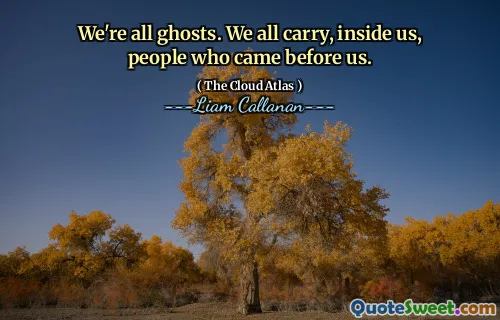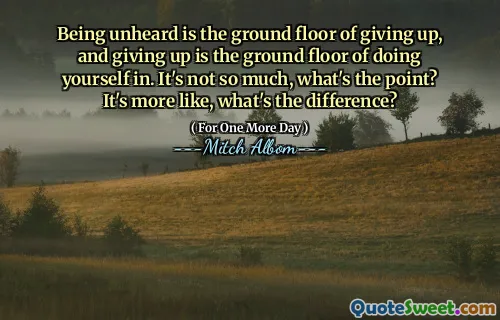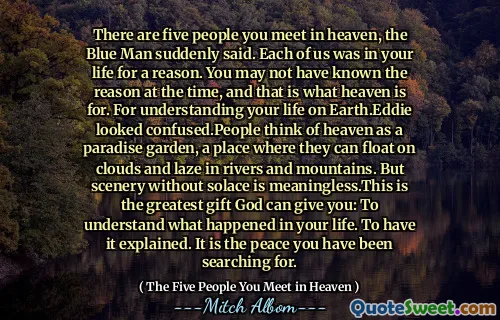
All things die, she told him. Such a truism, it was the trite utterance of any street-corner philosopher, but coming from Inaspe Raimm it sounded different. 'All things reach the end of their journey, be they trees, insects, people or even principalities. All things die so that others may take their place. To die is no tragedy. The tragedy is dying with a purpose unfulfilled.
This passage offers a profound meditation on the nature of mortality and the inevitable cycle of life and death. It challenges the common perception of death as something to be feared or mourned, instead framing it as an integral part of existence—a natural conclusion and a transition that makes space for new beginnings. The idea that "all things reach the end of their journey" emphasizes acceptance, encouraging us to view death not as an arbitrary loss but as a vital component of the cosmic order, where each ending serves a purpose in the grand tapestry of life. The mention of trees, insects, humans, and principalities broadens the perspective, suggesting that mortality applies universally across all scales of existence. This universal truth underscores the importance of embracing impermanence, which can relieve some of the suffering associated with loss. Moreover, the concept that dying without purpose is itself a tragedy invites reflection on how humans often grapple with feelings of regret over missed opportunities and unfulfilled potentials. It prompts us to live intentionally, to find meaning in our actions, and to ensure that our lives have purpose. Ultimately, this quote encourages a mindset of acceptance and mindfulness, urging us to see death not as an end but as a necessary phase that allows for continuation—an essential cycle in the perpetual evolution of life. Recognizing this can inspire resilience and a sense of peace amid life's fleeting moments.






